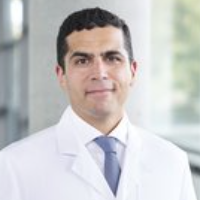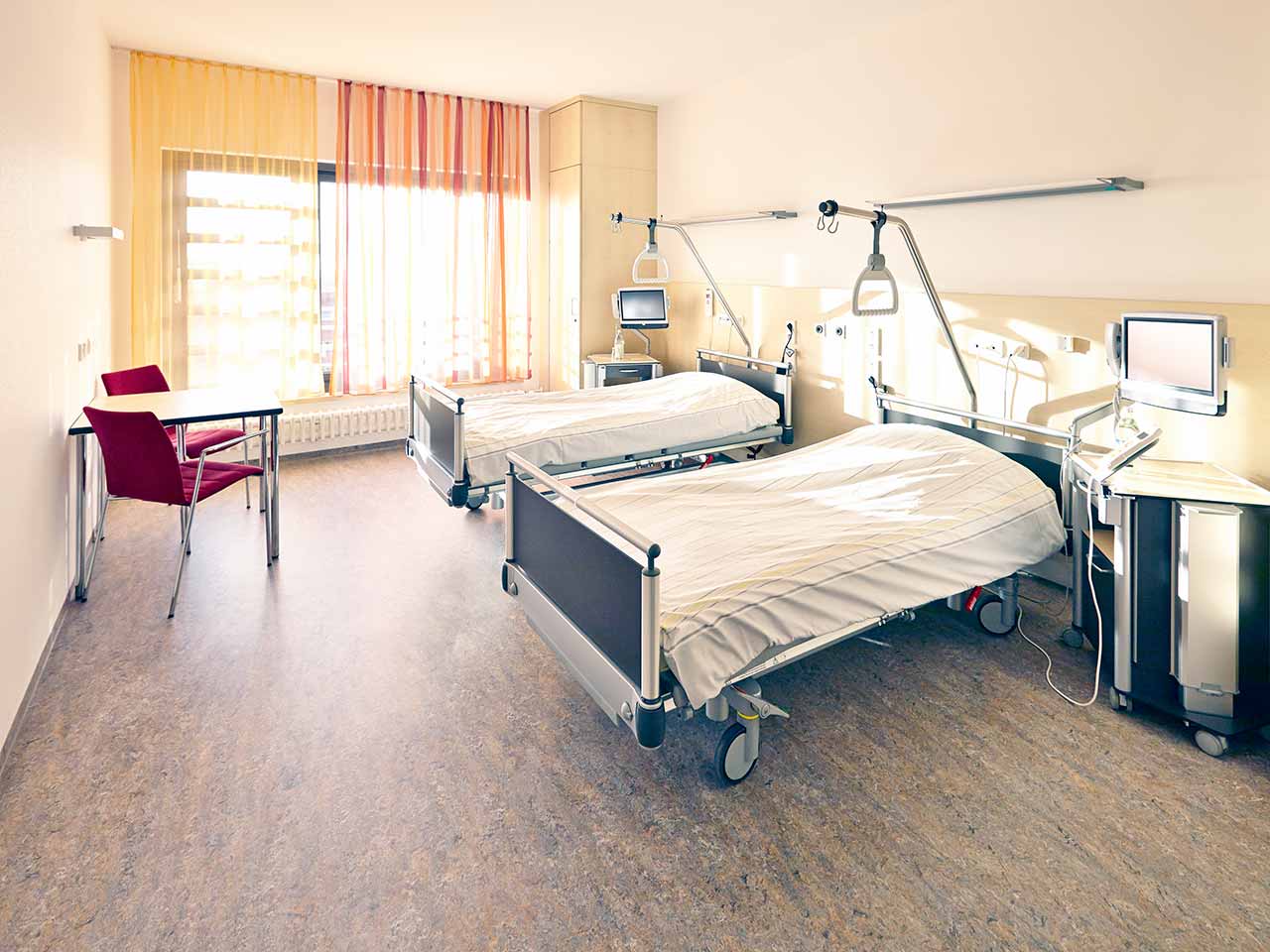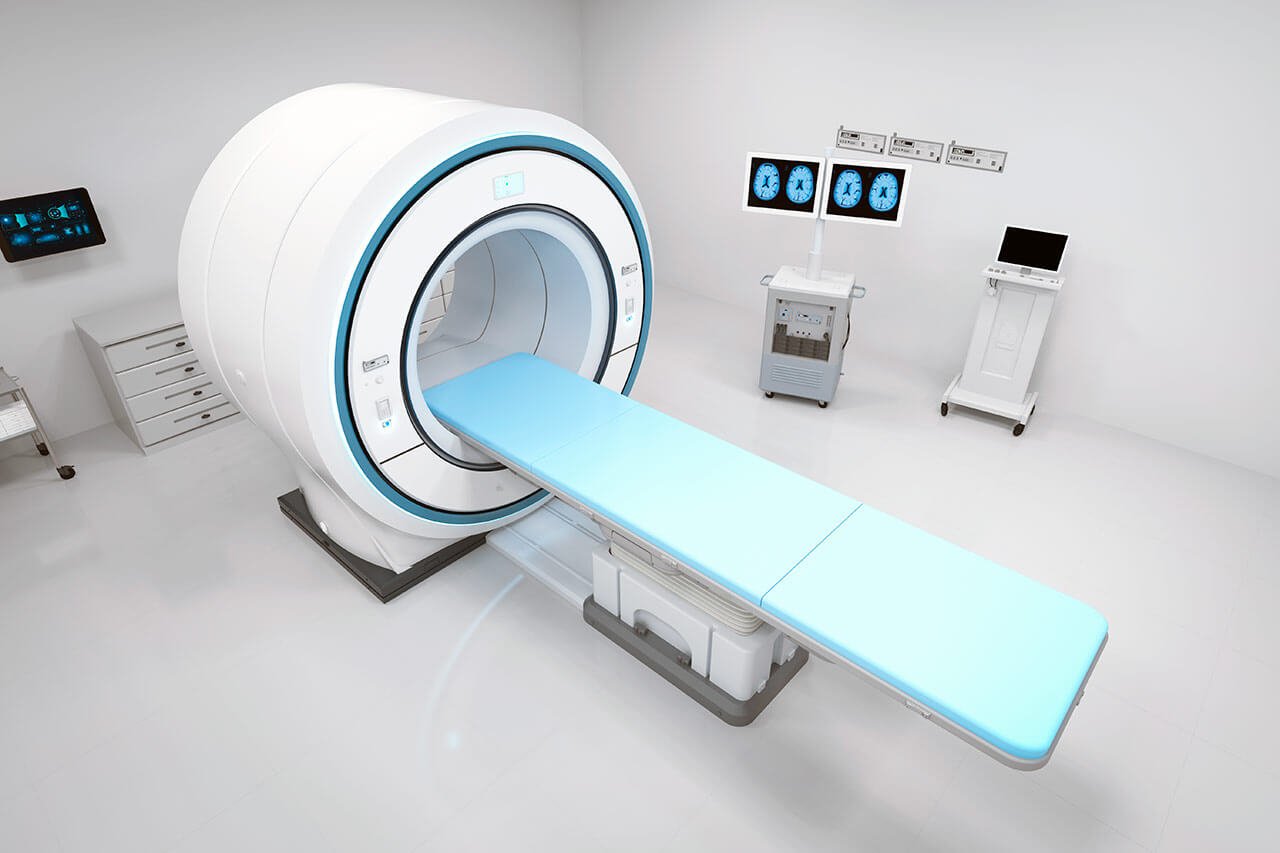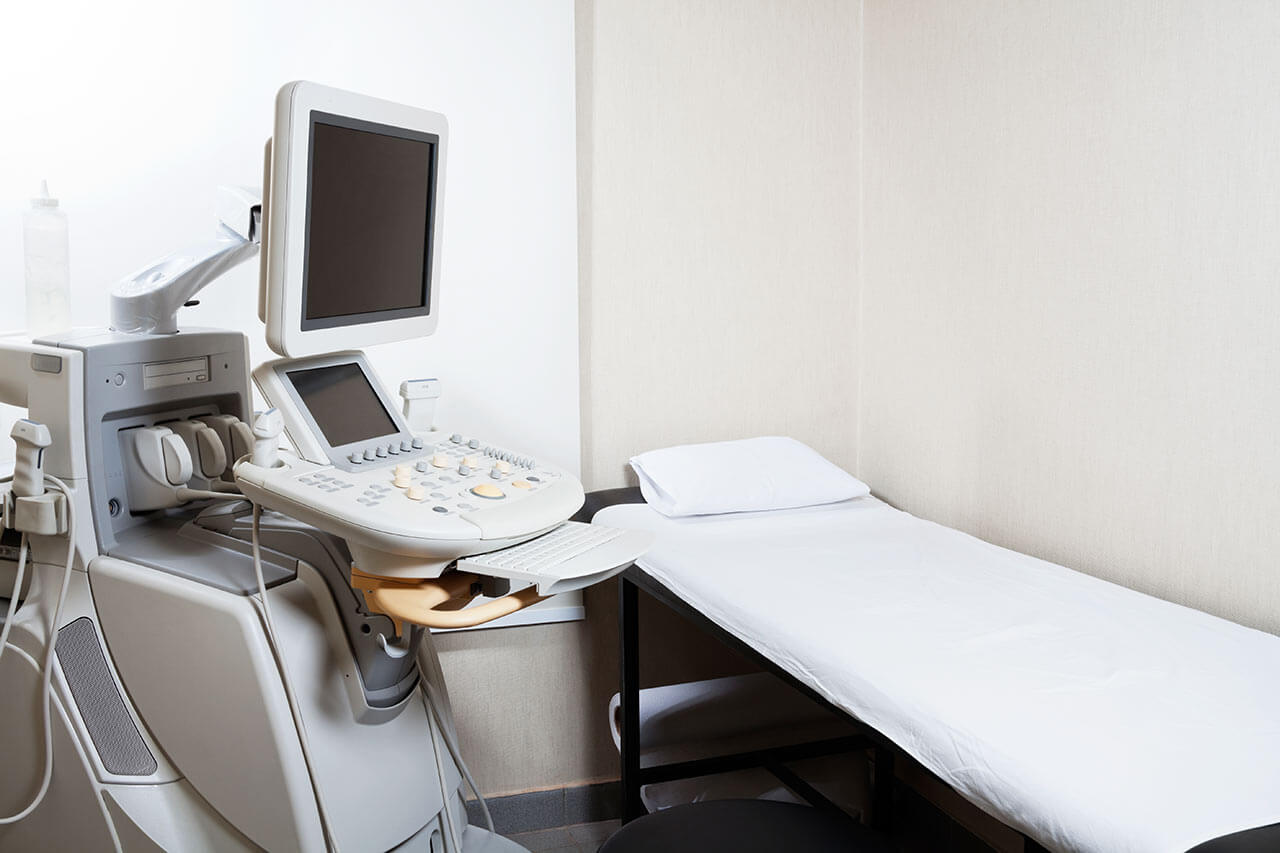
The program includes:
- Initial presentation in the clinic
- case history collection
- general clinical examination
- laboratory tests:
- complete blood count
- general urine analysis
- radioimmunoassay
- proinsulin secretion and C-peptide
- blood glucose
- biochemical analysis of blood
- TSH-basal, fT3, fT4
- tumor markers
- indicators of inflammation
- indicators blood coagulation
- abdominal ultrasound
- MRI of ches and abdominal cavity
- gastroscopy with biopsy
- endoscopic retrograde cholangiopancreatography (ercp)
- preparation according to preoperative standard
- pancreatic pseudocyst removal (extirpation)
- histological examination
- symptomatic treatment
- cost of essential medicines
- nursing services
- full hospital accommodation
- explanation of future recommendations
Service
You may also book:
 BookingHealth Price from:
BookingHealth Price from:
About the department
The Department of General and Abdominal Surgery, Hepatopancreatobiliary Surgery, Colorectal Surgery, Endocrine Surgery, Hernia Surgery and Bariatric Surgery at the University Hospital Ulm offers the full range of effective surgical treatments in accordance with modern medical standards. Operations of varying complexity are performed on the stomach, colon, pancreas, liver, gallbladder, bile ducts, rectum, thyroid gland, and parathyroid glands in the department's operating rooms every day. The department's primary focus is the surgical treatment of malignant gastrointestinal tumors. The medical facility is certified in this area by the German Cancer Society (DKG). The team of endocrine surgeons specializes in the treatment of diseases of the thyroid gland, parathyroid glands, and adrenal glands. Patients with morbid obesity are also successfully operated on here. In their work, the department’s specialists primarily use minimally invasive surgical techniques, which virtually eliminate trauma to healthy tissue during the intervention. The department's operating suite is equipped with an innovative da Vinci Surgical System, which allows the doctors to perform sparing and high-precision surgical interventions. The specialists of the medical facility strictly adhere to hygiene and safety standards and create the most comfortable conditions for each patient during their hospital stays. The department is headed by Prof. Dr. med. Nuh Rahbari.
The department regularly demonstrates high success rates in cancer treatment. Colon cancer is one of the most common and life-threatening oncologic diseases worldwide. The department is part of a highly specialized Colon Cancer Center certified according to ISO 9001:2008 and the German Cancer Society (DKG) standards. These certifications confirm the high competence of the center in the area of its specialization. The department's surgeons operate on patients with colon cancer almost every day. In the early stages of cancer, abdominal surgeons usually manage to perform a curative surgical procedure. As a rule, the specialists perform en bloc resection, during which the malignant tumor and the tissues affected by the oncological process are removed. Single metastases in the liver or other organs are also often removed during curative surgery (ablative techniques such as radiofrequency ablation or laser-induced heat therapy may be used if clinically indicated). This approach improves the patient's prognosis. In advanced stages of cancer, palliative surgery usually becomes an option of choice. It is aimed at increasing life expectancy and ensuring a high quality of life, rather than a cure. Colon cancer surgery is most often performed in the department using minimally invasive techniques. In addition to surgery, chemotherapy and/or radiation therapy are also included in the treatment regimen. In cases of stenosis of certain parts of the colon, surgeons perform endoscopic procedures in cooperation with gastroenterologists. These include dilatation with subsequent stent implantation, argon plasma coagulation, cryotherapy, or laser therapy.
The department's endocrine surgeons are responsible for performing operations on the thyroid gland, parathyroid glands, and adrenal glands. More than 200 such interventions are performed here annually. The diagnostics and development of treatment regimens are carried out in close cooperation with endocrinologists and nuclear medicine specialists. Minimally invasive surgical techniques are used during the operations, so recovery in the postoperative period takes only a few days. In addition, doctors use the very latest neuromonitoring system during thyroid and parathyroid surgery to prevent damage to the recurrent laryngeal nerve (damage to this nerve may cause severe voice disorders). It is noteworthy that the department's endocrine surgeons are members of the German Working Group on Endocrine Surgery, so they take an active part in promising research projects and actively implement the latest developments into their clinical practice.
In the field of hepatopancreatobiliary surgery, the department offers surgical treatment for diseases of the pancreas, liver, gallbladder, and bile ducts. Surgeons perform operations both for benign pathologies (pancreatitis, cholecystitis, benign liver tumors, etc.) and malignant diseases (pancreatic cancer, liver cancer, and gallbladder cancer). In cases of localized malignant hepatopancreatobiliary tumors, surgery for total removal of the neoplasm is performed, while advanced stages of cancer may require extended resection. The department's surgeons also specialize in the removal of liver metastases using radiofrequency thermal ablation.
The department's range of medical services is complemented by hernia repair surgery. A hernia is a pathological protrusion of the internal organs from one cavity into another or outside the body through natural openings. The department primarily operates on patients with inguinal, umbilical, and incisional hernias. The "gold standard" of surgical treatment for hernias is hernia repair with a mesh implant. The intervention is performed through a minimally invasive approach, so the surgeon makes several punctures in the abdominal wall instead of a traumatic incision. The specialist inserts surgical instruments and a laparoscope with a built-in miniature video camera through the punctures. After returning the organs to their normal anatomical position, a mesh implant is placed to reinforce the hernial orifices.
The medical facility also admits patients with morbid obesity (body mass index over 40 kg/m2). In the case of this pathology, it is quite difficult to get rid of excess weight through diet, physical exercises, and drug therapy, so bariatric surgeons offer their patients sparing interventions aimed at reducing the stomach volume. They also perform combined surgery to remove parts of the stomach and small intestine. Gastric banding, sleeve gastroplasty, gastric bypass, and intragastric balloon placement are particularly popular procedures in the department. Following the operation, patients work with nutritionists, sports trainers, and psychologists because maintaining the prescribed diet, regular physical activity, and behavioral therapy are crucial for consolidating the results. The main task of the specialists is to help the patient achieve the desired weight, improve their general health condition, and improve their quality of life.
The department's key clinical focuses include:
- General and abdominal surgery
- Surgery for malignant gastrointestinal diseases
- Surgery for colon cancer
- Surgery for stomach cancer
- Surgery for esophageal cancer
- Surgery for benign gastrointestinal diseases
- Surgery for stomach ulcers
- Surgery for stomach and colon polyps
- Surgery for appendicitis
- Surgery for lipomas
- Surgery for sarcomas
- Surgery for ascites
- Surgery for malignant gastrointestinal diseases
- Hepatopancreatobiliary surgery
- Surgery for malignant hepatopancreatobiliary diseases
- Surgery for liver cancer and liver metastases
- Surgery for pancreatic cancer
- Surgery for gallbladder cancer
- Surgery for bile duct cancer
- Surgery for benign hepatopancreatobiliary diseases
- Surgery for pancreatitis
- Surgery for cholecystitis
- Surgery for liver cysts
- Surgery for liver abscesses
- Surgery for echinococcosis
- Surgery for liver adenomas
- Surgery for malignant hepatopancreatobiliary diseases
- Colorectal surgery
- Surgery for malignant diseases of the rectum, anus, and sigmoid colon
- Surgery for rectal cancer
- Surgery for anal canal cancer
- Surgery for sigmoid colon cancer
- Surgery for benign diseases of the rectum, anus, and sigmoid colon
- Surgery for diverticulitis
- Surgery for Crohn's disease and ulcerative colitis
- Surgery for hemorrhoids
- Surgery for anal fissures
- Surgery for anal fistulas
- Surgery for fecal incontinence
- Surgery for rectal prolapse
- Surgery for rectal bleeding
- Surgery for rectal polyps
- Surgery for malignant diseases of the rectum, anus, and sigmoid colon
- Endocrine surgery
- Surgery for malignant diseases of the thyroid, parathyroid, and adrenal glands
- Surgery for thyroid cancer
- Surgery for parathyroid cancer
- Surgery for adrenal cancer
- Surgery for benign diseases of the thyroid, parathyroid, and adrenal glands
- Surgery for benign thyroid, parathyroid, and adrenal tumors
- Surgery for goiter
- Surgery for hyperparathyroidism
- Surgery for malignant diseases of the thyroid, parathyroid, and adrenal glands
- Hernia surgery
- Surgery for inguinal hernias
- Surgery for umbilical hernias
- Surgery for incisional hernias
- Bariatric surgery
- Gastric banding
- Gastric bypass surgery
- Intragastric balloon placement
- Sleeve gastroplasty
- Other surgical options
Curriculum vitae
Since 01.10.2023, Prof. Dr. med. Nuh Rahbari has been the Head Physician of the Department of General and Abdominal Surgery, Hepatopancreatobiliary Surgery, Colorectal Surgery, Endocrine Surgery, Hernia Surgery and Bariatric Surgery at the University Hospital Ulm.
Prof. Rahbari studied medicine at the Heinrich Heine University Duesseldorf and the University of Munich. He also underwent training at the universities of Bern, Chicago, New York, and Boston. In 2006, the professor defended his thesis at the RWTH Aachen University, after which he began his clinical practice at a medical center in Heidelberg. From 2011 to 2013, he did a research internship at the Harvard Medical School in Boston. From 2013 to 2018, Prof. Rahbari worked at the University Hospital Dresden, where he underwent habilitation in 2015. In April 2018, the specialist held the position of physician at the University Hospital Mannheim. In November 2020, he received the title of Extraordinary Professor at Heidelberg University.
The key clinical interest for Prof. Nuh Rahbari is the surgical treatment of liver and pancreatic tumors using minimally invasive techniques. His research activities are mainly focused on molecular mechanisms of tumor progression and an interdisciplinary approach to the treatment of solid gastrointestinal tumors.
Photo of the doctor: (c) Universitätsklinikum Ulm
About hospital
The University Hospital Ulm is an advanced medical complex that provides patients with high-class medical care using the very latest scientific achievements. The medical facility has been performing successful clinical activities for more than 40 years and has long earned an excellent reputation throughout Europe. The hospital regularly demonstrates high treatment success rates, takes an active part in the training of medical students, and works tirelessly on promising research projects.
The university hospital consists of 29 specialized departments and 16 scientific institutes, where more than 7,000 highly qualified employees work for the benefit of their patients. More than 55,000 inpatients and about 300,000 outpatients are treated here every year. The hospital has 1,274 beds. The medical team of the hospital is focused on providing personalized medical services using the most modern and sparing diagnostic and treatment methods.
The University Hospital Ulm is the largest medical complex in the region, and practically all areas of modern medicine are represented here. Transplantology and oncology are among the priority areas of clinical activity in the medical facility. The hospital holds leading positions in the world in bone marrow transplantation. In addition, the hospital has advanced experience in cancer treatment. The Comprehensive Cancer Center is recognized as the leading facility of this kind in the country, and it is certified by the German Cancer Society (DKG). It provides effective treatment for various types of cancer. The center also offers innovative CAR T-cell therapy. In addition, the Cancer Center is actively engaged in research activities to improve available treatment methods and develop innovative therapeutic techniques to fight cancer.
Along with the use of advanced technologies, doctors show respect, understanding, and a humane attitude toward the patient. The medical team includes competent psychologists, who are always ready to provide assistance and support to the patients and their families during the therapeutic process.
Photo: (с) depositphotos
Accommodation in hospital
Patients rooms
The patients of the University Hospital Ulm live in comfortable single and double rooms with a modern design and light colors. All patient rooms have an ensuite bathroom with a toilet and a shower. The patient room furnishings include a comfortable automatically adjustable bed, a bedside table, a wardrobe, a table and chairs, a telephone, a radio, and a TV. Wi-Fi access is also available in patient rooms.
The hospital also offers enhanced-comfort rooms, which additionally have a safe, a refrigerator, and upholstered furniture. The bathroom in the enhanced-comfort room has changeable towels, a cosmetic mirror, a hairdryer, and toiletries.
Meals and Menus
Patients and their accompanying person are offered three meals a day: breakfast, lunch, and dinner. The patient and accompanying person have a choice of three menus every day, including a vegetarian menu. Patients staying in the enhanced-comfort rooms are also offered light snacks, fruits, desserts, and hot and cold drinks in the comfortable lounge area.
If, for some reason, you do not eat all the foods, you will be offered an individual menu. Please inform the medical staff about your dietary preferences prior to treatment.
Further details
Standard rooms include:
![]() Shower
Shower
![]() Toilet
Toilet
![]() Wi-Fi
Wi-Fi
![]() TV
TV
Religion
The hospital has a chapel where Catholic and Protestant services are held weekly. The services are also broadcast on the internal television channel of the hospital. The chapel is open 24 hours a day for visits and prayers.
The services of other religious representatives are available upon request.
Accompanying person
Your accompanying person may stay with you in your patient room or at the hotel of your choice during the inpatient program.
Hotel
You may stay at the hotel of your choice during the outpatient program. Our managers will support you for selecting the best option.






